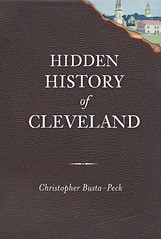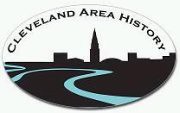The New Traditional Garden : A Practical Guide to Creating and Restoring Authentic American Gardens for Homes of All Ages by Michael Weishan (Ballantine Books, 1999).
 This might not be the book you'd want to consult if your house was built during the 20th century (particularly the mid-20th century, as the author is pretty vocal about his disdain for 1950s architecture and landscape design). But for 19th century homes -- such as those in Ohio City -- The New Traditional Garden might be a good bet.
This might not be the book you'd want to consult if your house was built during the 20th century (particularly the mid-20th century, as the author is pretty vocal about his disdain for 1950s architecture and landscape design). But for 19th century homes -- such as those in Ohio City -- The New Traditional Garden might be a good bet.Restoring American Gardens: An Encyclopedia of Heirloom Ornamental Plants, 1640-1940 by Denise Wiles Adams (Timber Press, 2004).
 To compile this comprehensive volume, Adams used a database of 25,000+ plants and hundreds of historic gardening catalogs to recreate 300 years' worth of American gardening trends.
To compile this comprehensive volume, Adams used a database of 25,000+ plants and hundreds of historic gardening catalogs to recreate 300 years' worth of American gardening trends.Another good way to find historic gardening information is to look at books and magazines that were published around the time your house was built. Cleveland Public Library has numerous titles -- such as Better Homes and Gardens -- in print and on microfilm. Search the online catalog for the subject "gardening -- periodicals."
One of the best and most underutilized garden resources in Cleveland is the Eleanor Squire Library at the Cleveland Botanical Gardens. In addition to housing more than 16,000 volumes, the Eleanor Squire Library holds the distinction of being the first circulating horticultural library in in the country. Yes, that's right -- unlike many special libraries, you can actually check books out of the Eleanor Squire Library. (If you're a member, that is. And we highly recommend becoming a member.)
Cleveland may not be the happiest, richest, or best-educated city in the country, but darn it, it's a great place for people who love books -- I've lived in four different states, and let me tell you, we've got some of the best used bookstores in the country. Check out the selection of antiquarian gardening books at places like Loganberry Books and the $2 Rare Bookstore.
Or, if you don't feel like leaving home, don't overlook Google Books as a good source for historic gardening information. Use the Advanced Search to limit by date; simply type in "gardening" or "garden" as your generic search term. Depending on when your house was built, there should be at least a few books available for full or limited preview!
P.S. - I'm not too proud to admit that I'm not the world's best gardener. So if anyone wants to share gardening tips with me, I'm fair game!




No comments:
Post a Comment